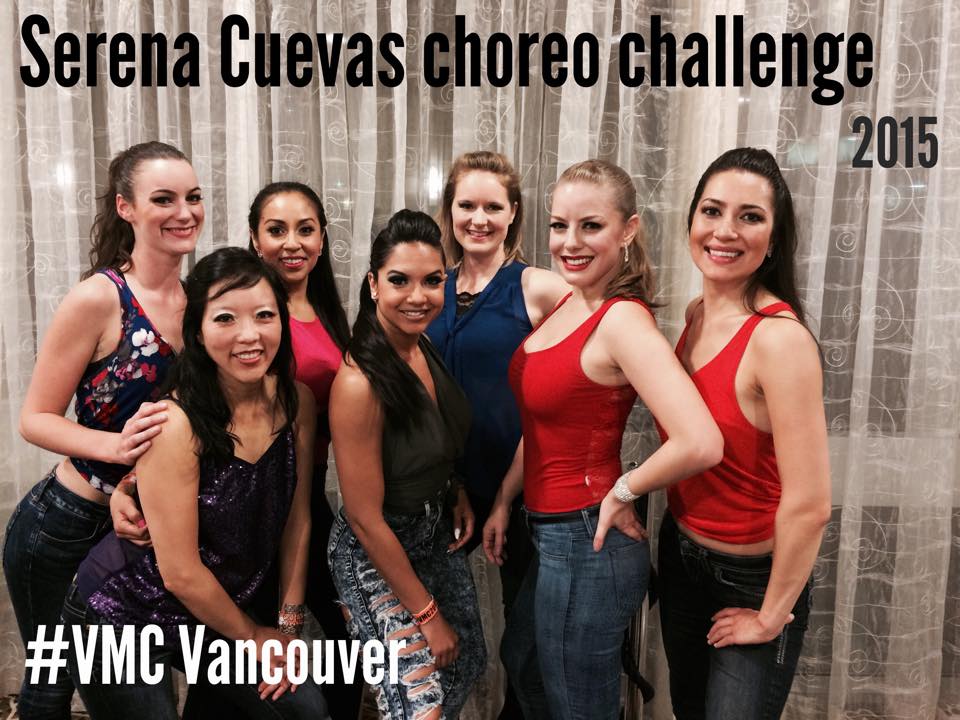Most people believe that introverts only feel comfortable in our shells. They think that the spotlight is reserved for outgoing extroverts who can handle having all eyes on them.
“Of course, extroverts would make better public speakers, actors, comedians, and performers,” they say with certainty. “Introverts are too shy to do any of that.”
They are wrong. There is a very long list of famous introverts who flourish in the spotlight: Barbara Walters, Al Gore, Barack Obama, Keanu Reeves, Emma Watson, Julia Roberts, Amy Schumer (yes, it’s true!) – just to name a few.
Why introverts make great actors and orators
Before they became celebrities, famous introverts were just quirky kids who lived inside their stories, and made speeches to their stuffed animals. Later, they were the ones who would skip a party to practice a speech. Or stay up all hours to perfect a dance choreography.
Introverted excellence – whether that be in the spotlight, or the lamplight – is usually the result of solitary obsession.
People tend to forget that comedians spend a lot of time observing, and thinking to come up with their jokes. Their time in front of the crowd is brief compared to the countless hours they devote to lonely preparation.
The same principle applies to actors, orators, dancers and other performers. They spend far more time preparing behind the scenes than they do in the spotlight. Then they must simply cultivate the courage to take their skills to the stage.
Introverted Courage
Fortunately, extroverts don’t have a monopoly on courage. Even us quiet types can be brave as lions. We, too, can muster up the gumption to go after our dreams. Sometimes our aspirations take us behind the scenes. Other times they bring us to the forefront where all eyes are on us.
Rosa Parks was a courageous introvert who embodied the kind of “quiet fortitude” that can inspire a nation. Author Susan Cain explains:
I had always imagined Rosa Parks as a stately woman with a bold temperament, someone who could easily stand up to a busload of glowering passengers. But when she died in 2005 at the age of ninety-two, the flood of obituaries recalled her as soft-spoken, sweet, and small in stature. They said she was “timid and shy” but had “the courage of a lion.” They were full of phrases like “radical humility” and “quiet fortitude.”
Our fear is our friend
Courage cannot exist without fear. Often it is the fact that we are scared shitless that motivates us to follow through. Like many introverts, I over-prepare in the face of fear. This innie characteristic has helped me to develop many talents that would have otherwise lain dormant.
As you might already know, I used to be a professional salsa dancer. I competed and performed in front of huge crowds. Nowadays, I spend more time in front of the computer than in the spotlight. That all changed this past weekend.
I was at a salsa dance event in Vancouver and decided to do salsa superstar Serena Cuevas’s choreo challenge.
A group of brave ladies and little ol’ me learned, practiced and performed one of Serena’s choreographies in less than 48 hours!
It was scary. I thought I would most definitely freeze, or fall on my face. But then that old, familiar, introverted obsessive focus kicked in and somehow I made it through.
It wasn’t a perfect performance, but considering the circumstances, we were all delighted with how it went. The most important thing is that we had the courage to just do it despite our fear.
What to do when the fear is too great
Sometimes, our fear gets in the way of what we want to do. Instead of motivating us, it debilitates us. It’s not just performances and presentations that get our hearts racing. Often, talking to someone new, setting boundaries, or sharing our truth can feel unbearably scary.
The reason is that we don’t trust ourselves. We don’t believe that we’ll be able to follow through. We want proof that we won’t fall flat on our face. With this in mind, one of the best ways to overcome our fear is to give ourselves proof.
Find examples of success in your past and focus on those. Next, learn to trust yourself by inching your way through your fears. Take tiny steps toward achievable goals instead of trying to make it to the championship on your first day of practice.
Over to you
Do you excel in the spotlight?
How do you overcome your fears?
Xo,














Great performance Michaela! 🙂 I would most surely, given my dancing skills, fall on my head a few times over haha (irish dance is the exception)… 😀 I too experienced fear when being in the spotlight, but like you, never allowed it to get the better of me. 🙂 I learned how to control it, how to overcome it. When on stage (of any kind, giving speeches, lectures in front of a large crowd etc…), I just focus and imagine that I am in my room, alone, that nobody is there except for me. It took me a lot of time to master this tehnique, but I did it. 🙂 Now, because of my profession, literally it is required of me to be on some kind of a “spotlight” on a daily basis. I don’t like it in most cases, but somehow and sometimes, in some strange way and in rare situations, I love it. 🙂 Before performing, I always tell myself one of my favourite quotes: “Fear is not real. The only place that fear can exist is in our thoughts of the future. It is a product of our imagination, causing us to fear things that do not at present and may not ever exist. Do not misunderstand me, danger is very real, but fear is a choice.” 🙂
Hi Michaela, being in the spotlight has definitely been a big fear for me. When I was in college, I hated giving speeches in front of my classmates because I was terrible at speaking! I often stuttered, forgot what I was going to say, and I felt terrible about myself. I could tell that some of my classmates were making fun of me too. In order to give a decent speech, I had to prepare really well and practice constantly in my room (I even practiced in front of my dad for my thesis :D) Even though I express myself much better in writing, I know that I can give good speeches by practicing a lot, I just have to find my introverted courage! 🙂
By the way you have great dance moves, I wish I had them too!
As what I consider to be a pretty standardized introvert who hates being in a crowd of strangers, I’ve built up the gumption to attend one night of Comic Con this year to stand by a friends booth and advertise my first novel. I’m nervous, but I have a plan! I’ve armed myself with a few stacks of brochures and bookmarks to give away, and I’ll be standing with an old-fashioned sandwich sign over my shoulders (drawing attention to the book’s cover, but not necessarily me).
It will be interesting to see how it goes, and how much interest in my book I can get by stepping out of my comfort zone and share something that I’ve invested A LOT of internal energy to create.
Many actors, musicians, authors and other artists find their sensitivity enhances creative expression, and may identify themselves as being shy, or consider themselves introverted or highly sensitive (which are different). Some examples: Alanis Morissette, Beyonce Knowles, fashion designers Tory Burch and Tom Ford, Amy Adams, Sigourney Weaver, director Ang Lee. Marti Olsen Laney, Psy.D., M.F.T. identifies a number of “famous introverts” including: Joan Allen, Harrison Ford, Candice Bergen, Ellen Burstyn, Glenn Close, and others. – From Introverted, Shy or Highly Sensitive in the Arts http://highlysensitive.org/introverted-shy-highly-sensitive-arts/
I thought I had overcome stage fright, but I couldn’t do THAT.
You other points are really well made, I came across the same issues and feel so much better for overcoming them. Well written, many thanks
Thanks Richard! 🙂
I’m not sure stage fright is really an intovert/extravert issue.
A lot of it probably has to do with experiences people have as school kids, or in college, such as reading aloud in class, being called on to answer questions, etc. and being criticized or ridiculed for making a mistake. My guess it that people have negative associations towards criticism, judgement, an close scrutiny. The same would apply in public speaking classes where the teacher scrutinizes everything the student does. I’ve noticed that out of the assigned speeches, almost everyone seemed to do the best with the “pet peeve” speech where they just rant about something. In that type of speech there is nothing to memorize since you already know what annoys you and all my classmates seemed to flow freely for this speech.
I’ve done three public martial arts demonstrations, one for a small gym and the other two on stage with hundreds of spectators. I had no stage fright at all. I just performed the skills as I was supposed to. I think part of it was that I was doing rather than thinking about what I was doing. I did give a short talk for the audience, but I think that part was easy because it was a topic I was enthusiastic about rather than something a teacher assigned.
I suspect that many who think they have stage fright might just remember experiences in school and might actually perform well when doing something they like and without a teacher grading them.
I am an introvert who hates speaking in public or being watched whilst doing so. I did a speech once and I was so nervous – I had a terrible time breathing and got out of breath with nerves – I also do this if I have to read out loud a long passage in the presence of other people.
This is an exercise one of my psychology professors did with my class. The class was divided into groups of two students and each student took turns playing the role of the client and the therapist, where the client would talk about the problem and the therapist would use Active Listening. The rest of the class would observe both students and evaluate their performance, whether or not they seemed to be in rapport, whether they seemed nervous, if the therapist was paying attention, etc. This took maybe two weeks for everyone to have a turn. The big reveal at the end was that while the exercise was intended to practice the skills, the main purpose was to teach us about stage fright. He asked the class if anyone was nervous when they were in the front of the room, and most students said they were. He also asked the class if anyone noticed anyone else being nervous and no one did. He explained that while we may experience these feelings, others usually won’t notice.
Firstly, your Salsa dancing performance was marvellous. Bravo !!! and Bravo !!! again. Even that Salsa of Salsa dancers, Teddy 001, thinks it was spectacular. Secondly, I have lectured to a group of approximately 1000 people on the coming era of Nanotechnology and Artificial Intelligence Nanotechnology (AIN). Like you, I can do this due to the countless hours I spend in preparation. Well done again on a magnificent Salsa routine. I am also a Salsa dancer, as is Teddy 001, so we are both complimenting you with credibility behind us (I have emailed you a picture of Teddy 001 in his Salsa outfit)
Really inspiring,I had always thought being introvert wasn’t good ,and sometimes I envied all those who seemed to flow with the masses I’m very thankful that I got to read this article.
I’m glad it was inspiring to you! 🙂 xo
A very well-written article! I myself am an introvert. When I’m with people, I talk very less. I spend more time listening and observing. However, I’ve always been a performer. Stage fright is something I don’t know exists. I have a good stage prrsence. I, however, am he’ll scared of impromptu performance. I need time to perfect my performance.
I love how you empower introverts, myself included. As a former musician who used to experience lots of stage fright, it is inspiring and necessary for similar performers to know it’s possible. Keep up the good work!